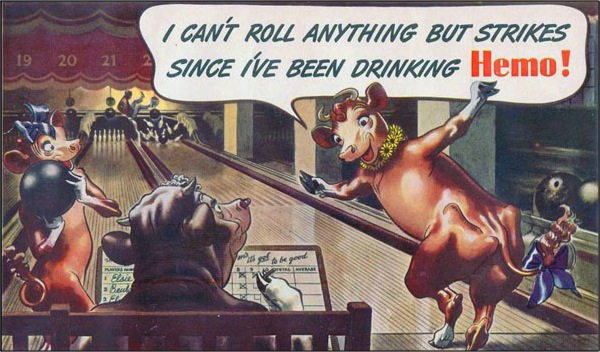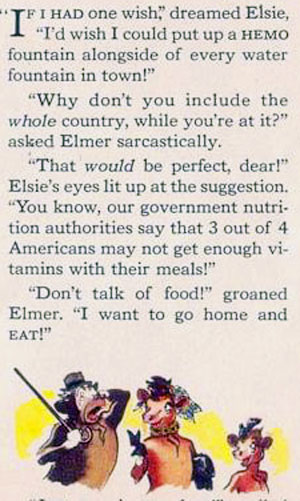When I got up from my nap I had a memory of the phone ringing; daughter filled me in.
Okay, it was a radio station in Australia, and they wanted to talk to you.
She was impressed.
The producer called me later, and wanted to discuss a Comedy Central show that “took the piss” out of their PM. Did I know the term? I did. Having not seen the taking of the magisterial urine, I watched it, and sat back to await the call. Alas: there was no time, and I was bumped for a later day. Maybe they weren’t serious. Maybe they were appropriating my micturition.
Huge work night. Drat. Good thing I have half a ton of content stored up. Okay, a quarter-ton. Would you believe . . . 16 ounces?
Would you believe I've never made a "Would you believe" joke before, because they're not funny? Not even when the catch-phrase was popular in the late 60s, thanks to "Get Smart." (Which I loved as a kid; I associate it with watching TV at the table and eating a Pinky's Pizza, a rare Saturday treat.) The "Would You Believe" construct was funny the first few times, but then it became a tic, a box to check off for the episode, a line that made its way to those tall greeting cards with oddly drawn people who had no necks and large half-oval noses, and probably ended up in a Spider-Man dialogue balloon.
Which brings up two other cliches I first heard through Spider-Man: Your Friendly Neighborhood (X), and Support Your Local (X). Both, I'm sure, were intended sincerely. Both ended up as punchlines. Nothing tendered in sincerity and repeated to the point of annoyance will keep its original meaning; indeed, the meaning that replaces the original meaning will end up the only meaning anyone knows, because they are unable to think of the line in any context that isn't humorous or sarcastic.
Which brings up something that's been gnawing at me lately: What’s the opposite of nostalgia? What’s the word for an exaggerated dislike of a particular time? I know I am nostalgic for things I did not experience, and only see through the pop-culture elements left behind, which communicate incomplete and occasionally misleading messages. But I have antipathy for things I experienced at the fringe of adolescence - not because it was a bad time, or I didn’t like them then, but because they seem now to be the products of a culture that was getting cheap and lazy; it was full of gimcrack baubles turned out by an exhausted system that tried to adapt to the times, but had no strength to put forth any ideas or uphold any ideas that went before. The period from 1967 to 1975, with some stellar exceptions, was just a horrible time for everything, and you can reduce it all down to one middle-aged balding dude with wet hair plastered over his head in brown polyester pants and a mustard-yellow shirt approving one thing after the other because the kids will go for it.
That’s a generalization. Somewhat. But. I’ve said this before: “Mad Men”’s exploration of the late 60s somehow avoids the fact that advertising in that era was horrible. Compare an issue of Life magazine from 1968 to its 1958 counterpoint - it’s as if style, color, art, romance, seduction, adulthood, and bright-eyed joy had been drained from the world. The ads weren’t about the product anymore; the ads were about the ads.

Pupdate: I removed the leash line via PS to remove anything that distracted from the cuteness.


I watched “Wolf of Wall Street,” which is three hours of SWOOPING cameras and grimacing Leo and curious comedy and nakedness, all of which follows the trajectory you expect from a Scorcese movie about alpha males with ungovernable ids.
Anyway: while researching - okay, sorry, googling the company on which the movie was based, I discovered that they sued Prodigy for libel. That rang an old bell whose clapper was rusted and spiderwebbed; I remember attending the launch for Prodigy, which was the internet before the internet, in the AOL sense. News! Stocks! Recipes! (Recipes were always a selling point in those early days.) You could sent up to 30 electronic messages per month, too. I remember being underwhelmed, like I was underwhelmed with AOL and the Washington Post’s initial online service and the StarTribune’s service. They just made you hungry for the point when there was more of everything, and it was faster. (Oh, the days of dialing up AOL and waiting for art to download one bit at a time.) Prodigy eventually fell to AOL, turned into an ISP, and now the homepage is defunct.
But it’s still an ISP in Mexico.
Where it has 92% of the market.
This is like finding out that the biggest selling TV in South America is a Crosley.


Our weekly look at ads, labels, products, displays, and other disconnected piece of commercial culture detritus. If we're lucky, we have a . . .
WEEKLY BORDEN
How does she pick up the ball? How? Does HEMO make you grow digits? 

 |
|
She went nuts about Hemo for a year or so, and obviously Elmer has dropped all attempts to engage her on the matter in a rational, everyday manner; he's gone straight to sarcasm, knowing she won't get the point.
Which she doesn't. |

AHOY
A storied name:

Not that Britannic, though. If you’re wondering. The previous Britannic was the sister ship of the Titanic; it went down in 1916 when it hit a mine, and the death toll was only 30. This time they had enough lifeboats. The ship also had a double hull and other safety features, but it sank three times faster than Titanic.
This Britannic was launched in 1929, and sailed the Caribbean in the summer. Translation: booze cruise. The ship went to Cunard n ’34 and was withdrawn from service when the Depression bit hard. She was a troopship in WW2, then returned to service in 48. Wikipedia notes that the ship was refitted with furnishings from the Aquitania, a four-funnel behemoth that was the last of the Cunard giants. (It was, among other things, the Lusitania’s sister ship.) Aquatania's Wikipedia entry notes that the ship was probably due to be scrapped by ’49:
The decks leaked in foul weather and a piano had fallen through the roof of one of the dining rooms from the deck above during a corporate luncheon being held on the ship.
Yes, that’s a bad sign. Anyway:
Britannic was a popular passenger liner, as she represented what was then the latest in interior Art Deco decor and furnishings, as well as the "Motor Cabin Ship" style, which featured squat smokestacks and a sleek profile.
Nowadays we like the taller stacks.
CONGOLEUM
You might be asking what rubber tile gives you. Congowall is here to answer that question, as well as tell you what sort of color combinations they deemed acceptable.

Pink and black? They go together. Brown and puke green? They are capable of coexisting. All of the above? No please. No. Please no.

This next one is different, and better: the “Jackstraw” pattern doesn’t quite go with “Fashion Floor” to modern eyes, but if anyone found this in a suburban rambler nowadays, they’d keep it. Bad taste, like prostitutes, eventually gain respect with age.
BULBS
This is what bulb packaging looked like in 1950. The actual package looks indistinguishable from modern versions; same corrugated cardboard, same inverted bulb posture.

Think of that: over half a century later, they couldn't improve on the basic idea.
HALLELUJAH
Another bar that didn’t go the distance, perhaps because people associated its cleansing strength with Faintness:

Few Google returns, but one is amusing. I think I’ve mentioned this before in another context.
In June, 1959, when CBS informed him his show was being canceled. Dean, to say the least, was not pleased. He brought up his sponsor, Praise Soap, manufactured by Lever Brothers. Having fought his way out of Texas poverty, he had no qualms about speaking his mind even if he made enemies at CBS.
You can bet the boys in the booth sat up straight when he went off script.
It’s an odd name for a soap. Somehow too . . . religious.


JELLIED WADS
Finally, some Brach’s - we’ve discussed the history of America’s favorite Grandma Candy before, but here are some examples of early 60s packaging and in-store displays:


Two clerks employed to fill the candy crowd! And answer questions like “What the heck is burgundy?” As for the rest: I remember those chocolate ripple nougats as being rather nasty.
Same goes for the other three, come to think of it. Can’t say the prospect of those Kentucky Mints ever lit up a kid’s eyes, and the “Jelly Nougats,” well, what does that mean? “Form Substances! have some nice delicious Form Substances.”


Work blog around 12:30, Tumblr around noonish or so - see you then! And of course, Richie Rich.

|